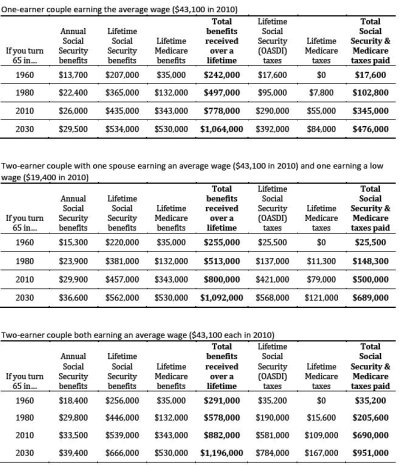Ziggy's response suggested to me that seniors were willing to have their kids and grandkids screwed and not share in the sacrifice of fixing SS, medicare, etc. and I just don't think that is true. It might be true for some seniors, but many seniors that I know (mom, aunts, etc) are doing well and if their benefits had to be reduced some to fix SS and Medicare then I don't think they would object, particularly if the change was not a direct reduction of their checks, but more indirect like lesser increases, perhaps more SS included in taxable income, etc. I have no doubt that there are some seniors who have the attitude ziggy suggested, but I think there are many that do not (including many on these boards - perhaps a good poll), hence the wide brush comment.

 YMMV
YMMV
